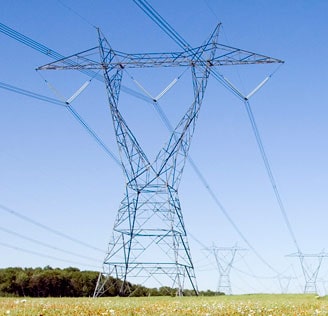Alberta’s weighted average Power Pool price for December is currently $39.90/MWh. Prices increased slightly relative to last week, by $1.16/MWh or 3%. There have been a few volatile periods so far this month, none of which lasted long enough to significantly impact the average monthly Power Pool price. Prices reached a high of $118.08/MWh at 5pm MST on the 2nd and, on the 9th, peaked at $398.87/MWh at 6pm MST. Average hourly demand in the province was 10,005MW, which is normal for this time of the year; should demand trend upward, increased volatility should be expected. There have been a number of intermittent outages so far this month, most of which lasted a day and did not have a substantial impact on pricing. Multi-day generator outages at Battle River 4, Keephills 3, Battle River 5, Genesee 2 and MacKay River, however, did result in periodic price volatility.
The weighted average Hourly Ontario Energy Price (HOEP) is currently at 1.4¢/kWh for December, an increase of over 130% or 0.8¢/kWh compared to last week’s settle. This price jump is driven by a shift in the generating supply mix toward expensive, dispatchable natural gas. While demand and supply levels this past week have remained stable relative to average December levels (15,894MW and 16,577MW, respectively), natural gas has increased its supply by over 11% (1,201MW). Nuclear’s baseload has remained stable (9,047MW), with wind decreasing its supply (-15%, 1,865MW) and other sources increasing their supply: hydro (+3%,4,365MW), solar (+14%, 31MW), biofuel (+3%, 67MW).
Currently, with the first Global Adjustment estimated at 10.7¢/kWh, December’s total market price is 12.1¢/kWh. Speaking of the Global Adjustment, as we mentioned last month, Ontario’s government released the 2021 Budget in which a 22% reduction to the GA was announced. As part of the budget process, the provincial parliament held the first reading of Bill 229, “Protect, Support, and Recover from COVID-19 Act (Budget Measures), 2020” on November 5th. The Act proposes to amend various sections of 44 separate Acts, including the Ontario Energy Board Act of 1998, whose proposed changes include the removal of objectives relating to a smart grid and renewable energy sources and the addition of objectives relating to innovation and general ability to improve inter-connectivity. Bill 229 received Royal Assent yesterday and while it makes no mention to the specific budget outcomes the Ontario government has advertised (like the 22% reduction), the stage is set to indeed make them. With only 21 days left before the announcement of January 2021’s first estimated GA, the implementation of said reduction will have to move forward with lightning speed, not to mention as simply as possible, for it to arrive on time.
– Mark Ljuckanov, Energy Data Analyst / Ryan Cosgrove, Energy Data Analyst / Grace Wilton, Energy Data Analyst








Add comment